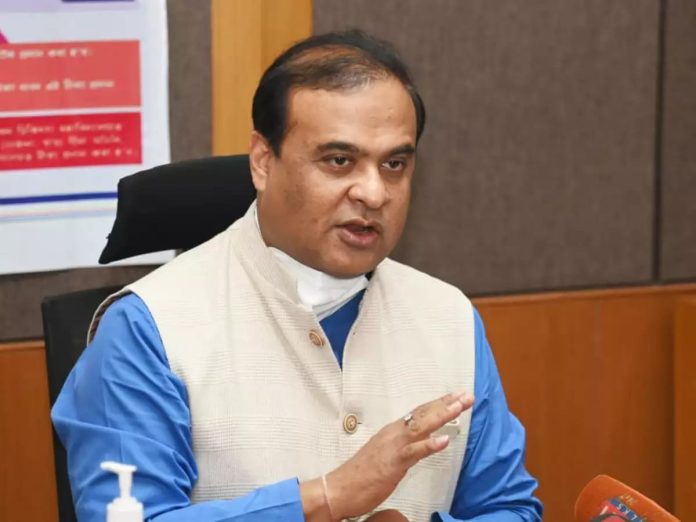As the Assam government grapples with growing criticism over its handling of flood management in Guwahati, Chief Minister Himanta Biswa Sarma has intensified the controversy by accusing a prominent Muslim-owned university of exacerbating the city’s flood crisis. Labeling the situation as part of a so-called “flood jihad,” Sarma has directed his accusations at the University of Science and Technology Meghalaya (USTM), further complicating the state’s communal and environmental discourse.
This is not the first time Sarma has invoked the term “jihad” in a controversial context. Earlier, the Chief Minister had stirred public debate by accusing Muslim farmers of engaging in “fertilizer jihad,” suggesting that they were deliberately hoarding and misusing fertilizers to sabotage the agricultural productivity of Assamese farmers. These remarks had already raised eyebrows and sparked widespread debate over the communalization of agricultural issues in the state.
On August 5, Guwahati was paralyzed by severe flash floods following a few hours of heavy rainfall. The downpour overwhelmed the city’s drainage system, leading to widespread waterlogging, traffic disruptions, and severe inconvenience for residents. In the wake of these events, Sarma has redirected public frustration towards USTM, a private university on the outskirts of Guwahati.
In a public statement, Sarma accused USTM, which is owned by a Bengali-origin Muslim entrepreneur, of contributing significantly to the floods through deforestation in the surrounding hilly areas. He claimed that the ongoing construction projects at the university, including the development of a new medical college, have led to the destruction of natural barriers that once mitigated flood risks.
Sarma’s labeling of these activities as “flood jihad” has drawn widespread condemnation. By framing the university’s actions as part of a deliberate effort to harm Assam, Sarma has introduced a communal narrative into a complex environmental issue. The use of the term “jihad”—which is often associated with religious conflict—has become a recurring theme in Sarma’s rhetoric, adding a divisive element to the state’s political and social landscape.
The Chief Minister’s comments also include a call for Assamese students to boycott USTM, which has escalated tensions further. Critics argue that Sarma’s rhetoric is not only communalizing the issue but also undermining the academic environment by encouraging divisiveness among students.
Sarma’s accusations against USTM, following his earlier “fertilizer jihad” remarks, reflect a broader strategy of framing developmental and environmental challenges in communal terms. Environmental experts acknowledge that deforestation and unplanned urbanization are contributing factors to flooding in Guwahati, but they caution against reducing the problem to a single institution or community.
By targeting USTM, Sarma has also shifted the focus away from the government’s responsibilities in flood management. Critics argue that the Chief Minister’s remarks divert attention from the need for systemic improvements in infrastructure, early warning systems, and sustainable urban planning.
Reactions to Sarma’s statements have been polarized. While his followers support his concerns about environmental degradation, others are troubled by the communal undertones of his accusations. The invocation of “jihad” in both agricultural and environmental contexts is seen by many as an attempt to stoke communal sentiments for political gain, which could further divide the population.
Political analysts suggest that Sarma’s strategy may be aimed at consolidating support among certain voter demographics ahead of upcoming elections. However, this approach risks alienating other communities and escalating communal tensions in the state.




